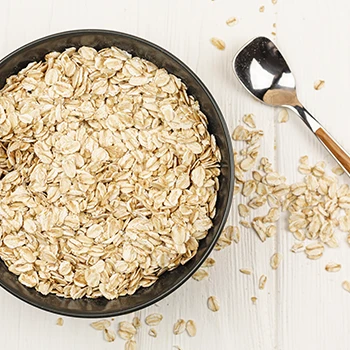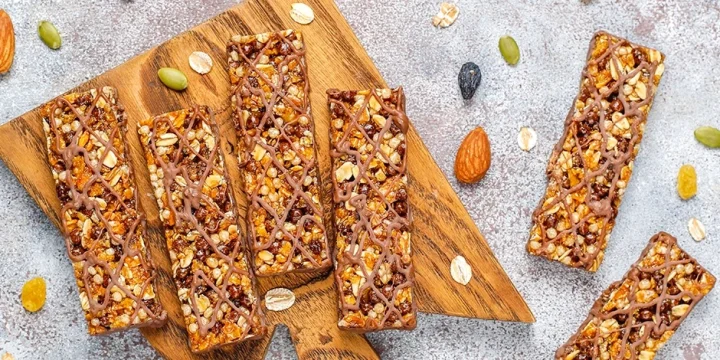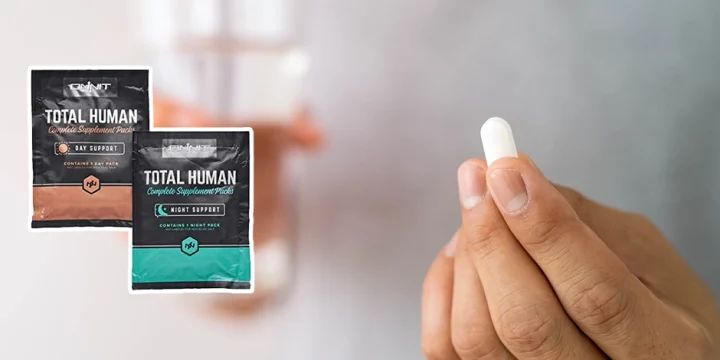Starting your day off with a healthy breakfast is probably one of the most important steps you can take on a weight loss journey. What you eat first thing in the morning can have a huge impact on your metabolism and also on hunger cravings later in the day.
You don’t have to take things to extremes with an oatmeal diet to lose weight, but it seems like there are some good reasons to make it part of your meal plan.
So, I spent time with my dietitian and nutritionist to research scientific studies on how plain oatmeal can help with losing weight.
Here’s what I found.
Quick Summary
- Oatmeal aids in weight loss by providing a rich source of fiber and complex carbohydrates, which help in reducing hunger and stabilizing blood sugar levels.
- Eating oatmeal regularly can lower bad cholesterol levels, improve heart health, and stabilize blood pressure.
- One cup of rolled oats contains 4 grams of fiber and 6 grams of protein, contributing significantly to a balanced diet for weight management.
- Personally, I've found incorporating oatmeal into my daily routine not only aids in weight loss but also improves overall health and well-being.
Does Oatmeal Help You Lose Weight?

Yes, oatmeal can help you lose weight. Having an increased oatmeal diet will ensure that you take in a lot more complex carbs and fiber.
In fact, one cup of rolled oats contains 4 grams of fiber, 6 grams of protein, and 28 grams of carbs [1].
And because they are whole grains, the carbs are more difficult to digest, and that means they won’t lead to sudden blood glucose fluctuations.
Now, I would say that you still need to avoid those oatmeal cookies that contain a ton of brown sugar or maple syrup.
But if you stick with whole oats at least for your breakfast, then it should have quite an impact on your weight loss success.
Let’s see why they are so good for you.

How Do Oats Help With Weight Loss?
According to WebMD, oats help with weight loss because they don’t contain simple carbs and are full of protein and fiber [2].
And here’s why that’s such a good thing.
First of all, according to a study in the National Library of Medicine, when you increase your protein intake, it can have a significant impact on your metabolism and lead to better weight management [3].
And that protein will also help athletes with their muscle recovery as well.
Then, when you eat oatmeal for breakfast, you’re not getting a sudden rush of simple carbs.
As a result, you’ll have more stable and lower blood sugar levels with an improved insulin response [4].
And finally, according to a study in Critical Reviews in Food Science and Nutrition, beta glucan fiber in oatmeal can make you feel full for longer and has been shown to lower cholesterol levels [5].
That gives it a perfectly healthy mix of nutritional benefits to help with your weight loss goals.
“Oatmeal is rich in soluble fiber. This type of fiber not only keeps hunger pangs away, but the gel formed by the soluble fiber also grabs cholesterol in your digestive tract and drags it out of your body”
- Jill Corleone, Writer at SFGate.com.
Posts you may like:
Other Health Benefits

Beyond weight loss, I've experienced several health benefits from my regular oatmeal routine, such as:
- Lower bad cholesterol, which improves your heart health and blood pressure.
- Boosts your antioxidants and prevents colon cancer [6].
- Nurtures gut health by feeding the beneficial bacteria in your gut.
- Improves skin health thanks to vitamin E.
- Boosts the immune system, and helps the proper functioning of many organs in the body.
And with such a simple ingredient, it couldn’t be easier to add it to a well-balanced and healthy diet.
Sample Oatmeal Ideas
Here are some ways you can start eating oatmeal more regularly.
For breakfast, I like to mix about a cup of dry oats or instant oatmeal into a bowl. I add two cups of almond milk, as it's my favorite.
Cook it in the microwave for about two minutes, and then add some nut butter and half a cup of fresh fruit.
Just avoid using dried fruit as it has too much sugar.
For lunch, I often follow a similar recipe. I mix the same amount of oats and added them to a frying pan with sautéed onions, bell peppers, celery, and a bit of spicy chorizo sausage for an extra kick.
This has actually become one of my favorite lunch recipes for an oatmeal diet. It’s incredibly tasty and keeps you going all afternoon without hunger cravings.
FAQs
Does Oatmeal Make You Full For Longer?
Yes, oatmeal can make you full for longer. It contains a good amount of soluble fiber, which swells up in your stomach. And that can make a big difference in weight loss when you’re less tempted to look for snacks.
Can You Have Oatmeal For Every Meal?
Yes, you can have oatmeal every day. And it’s a very good choice to make in order to help you with your weight loss efforts. The macros and fiber all work together to boost your metabolic processes, making them good for weight loss.
References:
- https://www.weekand.com/healthy-living/article/oatmeal-starch-fiber-18019640.php
- https://www.webmd.com/diet/health-benefits-oatmeal#1
- https://www.ncbi.nlm.nih.gov/pmc/articles/PMC7539343/
- https://www.hsph.harvard.edu/nutritionsource/carbohydrates/carbohydrates-and-blood-sugar/
- https://www.tandfonline.com/doi/abs/10.1080/10408399908500493
- https://www.webmd.com/diet/health-benefits-oatmeal
About The Author
You May Also Like






